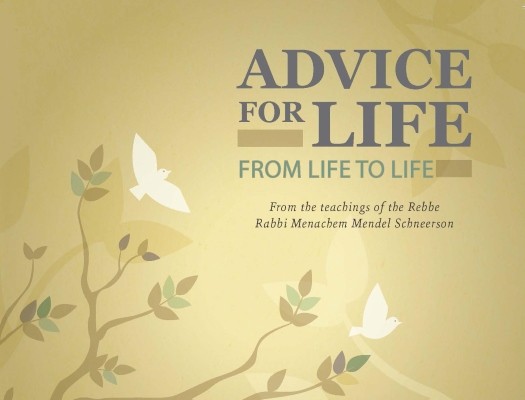
The Rebbe on the Passing of a Loved One
In honor of the Rebbe’s birthday, we present two stories of the Rebbe from the recently published Advice for Life: From Life to Life, published by Rabbi Dovid Zaklikowski of Hasidic Archives. The publication, the first of its kind in English, compiles the Rebbe’s teachings on life after death, it covers such topics as the soul, comforting, mourning, memorializing, the comforter, kaddish and yartzeit.
Your Parent’s Satisfaction
Malcolm Hoenlein’s son was soon to be wed, yet his father was critically ill in a Philadelphia hospital. Malcolm, a Jewish activist and executive vice-chairman of the Conference of Presidents of Major American Jewish Organizations, was torn between where to focus his energies.
It had been many years since he last visited the Rebbe, and he seized the opportunity for an impromptu trip to New York. When the Rebbe saw him, he instantly recognized Mr. Hoenlein and took great interest in his communal activities and personal life. The Rebbe inquired in great detail about areas of his work, especially in regard to Israel, showing broad knowledge that few took interest in.
The entire time, the Rebbe held Mr. Hoenlein’s hand and smiled broadly. The Rebbe gave blessings for the upcoming marriage, Mr. Hoenlein’s wife and his communal work. When Mr. Hoenlein asked for a blessing for his father, the Rebbe responded, “Your father should continue to have nachas [gratification] from your good work.”
The Rebbe quickly changed the subject and continued with another topic. Mr. Hoenlein was mystified by the Rebbe’s response. After a long moment, he again asked the Rebbe, “Rebbe, I would like to ask a blessing for my father, who is very sick.”
The Rebbe became serious and repeated, “Your father should have nachas from all the work you do.”
For Mr. Hoenlein, the message was clear. He quickly returned home, gathered some personal items and traveled immediately to Philadelphia. Mr. Hoenlein’s father passed away shortly before he arrived at the hospital.
Mr. Hoenlein understood the Rebbe’s message to mean that though the situation is grave, and his father’s physical passing may be near, do not despair. Rather, “you should continue—through your good work—to give your father’s eternal soul gratification.”
Life Continues
It was New Year’s Eve, 1952, young Chana Zuber’s birthday. She was about to meet old friends from Scandinavia, where her father was once chief rabbi, across a nearby park in residential Massachusetts.
That evening, Chana’s father, Rabbi Yacov Yisroel Zuber, decided to accompany his daughter through the park. He donned his black hat and long black coat, and they set out.
After dropping off his daughter, he headed home. Suddenly, several thugs jumped him, robbing him of a measly sum of money and running off. The beloved rabbi, community leader and scholar later died from the blow.
Chana struggled to deal with this horrific trauma. Ultimately, she built a new life despite her brutal loss. She married Mottel Sharfstein, and they became a family. Sadly, several years later, a mere five years after her father had been murdered, her mother passed away. Shortly thereafter, her mother-in-law passed away as well.
The young woman was devastated. She had grown up in Sweden without grandparents, and had always envisioned her children surrounded by doting grandparents. Now, Chana and Mottel were alone.
Through the period after her father’s passing, the Rebbe guided her as a father would. Following the slew of fresh losses, she penned her sorrows to the Rebbe and scheduled an appointment to see him. In a private audience with the Rebbe, she burst into tears.
With great compassion, the Rebbe explained, “It is our firm belief that G-d is the Master of the world, and constantly attends to everything that occurs, as well as to every individual. It is impossible for the human mind to fully grasp the ways of G-d.”
Ultimately, the Rebbe explained, G-d has His reasons for how and why matters evolve. However, one’s connection with his or her deceased parents cannot be diminished by their physical passing. The Rebbe provided a metaphor:
“Created matter cannot be completely destroyed. For example, if you burn a piece of paper, you will be left with ash. There is always something that will remain, though its form or shape may change. Similarly, a human being cannot be obliterated. When you love someone, you don’t just love their body; you love the person’s soul, character, and intrinsic nature. These elements cannot be obliterated.”
In another illustration, the Rebbe spoke of a person who travels far from home to fill a position of honor in a royal palace. No one would regard his departure as a tragedy.
The Rebbe concluded, “Living life with joy, as your parents would want, will bring the greatest merit and happiness to their souls. This will also bring you and your loved ones additional blessings, both physically and spiritually.”
Click here to purchase the publication.

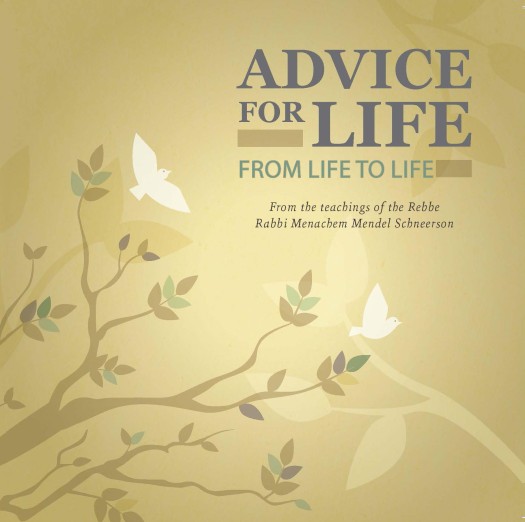
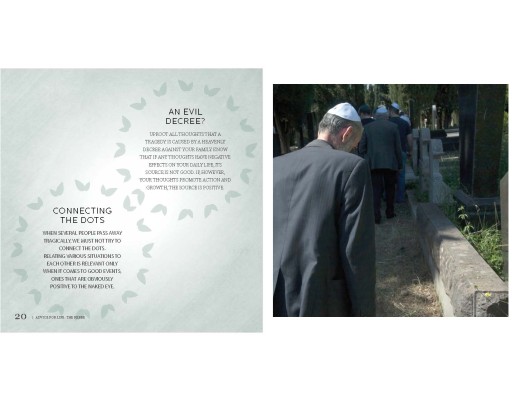
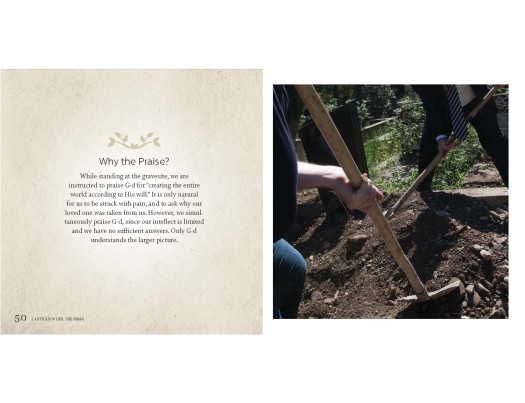
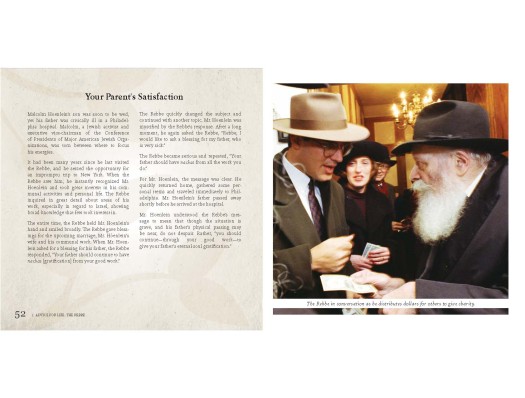
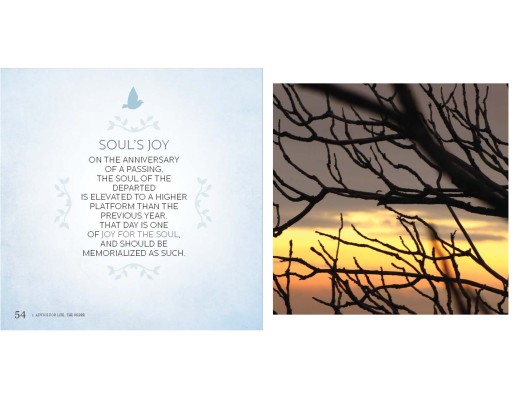












wow!
looking forward to getting my hands on the book…
very moving.
I wanted to cry while reading these stories. I ran to purchase a copy at Judaica World. it looks magnificent. great photos.
got it
It is a very moving document fRom the Rebbe’s teachings
just got a copy
it is one of the best chabad publications I have seen in recent years. written so warmly and the photos are wonderful.
very impressed
just picked one up and i must say it really gave me some good lubavitch views on death which we’re seeing a lot of lately unfortunately. Thank you for such great easy to read clear and beautiful booklets! (really impressed with the quality btw!)
Montrealer
We got copies here in Canada and everyone I speak to is discussing them.. they are really an amazing tool tand have helped a lot of people… thank you!